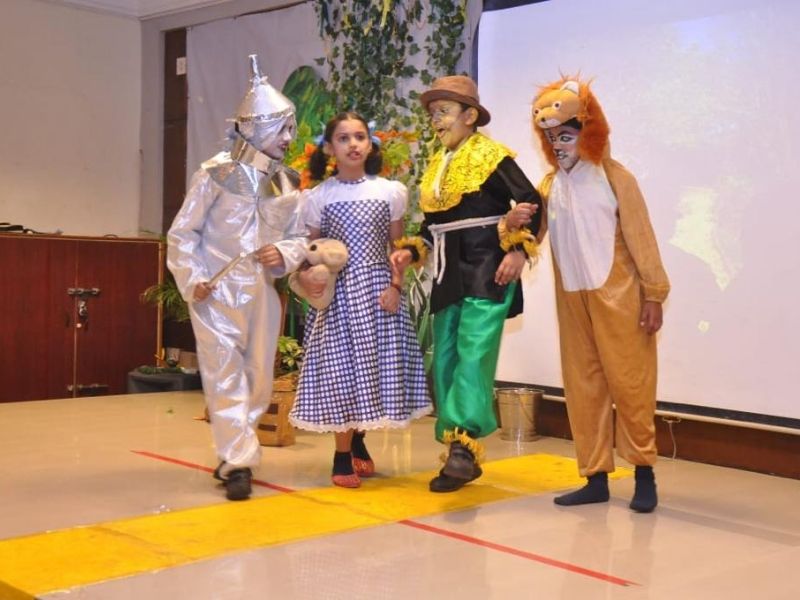No products in the cart.

Learning through drama
Drama and theatre education enhances cognitive understanding, creativity, confidence, communication, teamwork and linguistic capability among other vital life skills of children – Jayalakshmi Vaidyanathan

A class VII student, Lakshmi Sankar was struggling with grouping chemical elements in her chemistry class. Consequently, Lakshmi, who also attends an afterschool theatre club in Bangalore, decided to use her theatre class experience where she learnt to ‘recognise, realise and relate to a character’ to understand her chemistry lesson.
So, during a free period in school, Lakshmi gathered her classmates and worked on learning the chemical elements through drama and role play. Each child picked one chemical element and gathered information about it. During the role play, they enacted the properties, character and quality of each element. Dramatising this complicated scientific concept, helped Lakshmi and her peers not only understand it better but also made learning a creative and enjoyable experience.
In progressive schools across the country, drama and theatre is being used as a learning tool to promote understanding, meaningful, active and reflective thinking processes as well as to enhance communication skills development. “One of the reasons drama is able to enhance students’ learning experience is because of its unique ability to accommodate different learning styles and thus motivate learners,” writes Chandra Sakaran Kalidas of Taylor’s University, Malaysia in a research paper titled Drama: A Tool for Learning (2013).

Jehan Manekshaw, the Mumbai-based co-founder of Theatre Professionals Education and The Drama School, believes that drama and theatre education enhances and accelerates creativity, confidence, communication, teamwork and linguistic capability, among other vital life skills of children. “Regular access to drama classes also develops empathy, emotional and social regulation, critical thinking and high order abstraction skills. Research studies show retention is also very high in the drama environment, as it stimulates high engagement levels and on-your-feet thinking skills. However, this potential is severely limited when drama and theatre education is locked into the limited frames of the one class per week or the school’s annual performance. Only when drama is woven into the regular fabric of a school’s curriculum can these benefits be realised,” wrote Manekshaw in EducationWorld (December 2017).
Drama & children with special needs
Studies also indicate that drama education especially helps children with neuro-developmental disorders. A 2015 study published in the Journal of Autism and Developmental Disorders found that children with autism who participated in a 10-week, 40-hour, theatre programme showed significant differences in social capabilities compared to children (with autism) who did not participate. The study conducted by Vanderbilt University, Tennessee, concluded that theatre is inherently interactive engagement that involves socialisation activities such as observing, perceiving, interpreting and expressing sentiments and ideas, thus aiding development of social skills.
Drama exercises
Speech and drama practice boosts self-confidence, social, presentation and communication skills, and creativity. Try these games and exercises at home to add a little theatre to your children’s life:
Movement. Play the Statue/Freeze game wherein you ask children to stretch and spin and stop only when they hear the words Statue or Freeze. Each child takes turns to move, spin and freeze.
Voice exercises. Toss a ball in the air and say ahhh, mmmm, oohhhhh, oopppp every time. These are sounds that come from the diaphragm, and help children learn how to throw their voice.
Tongue twisters. Practising tongue twisters helps improve dialogue delivery.
Story telling. Encourage children to enact a story through mime and play acting.
Puppetry exercises. Make simple puppets out of old socks, cardboard, dolls, etc and use them to tell a story.














Add comment